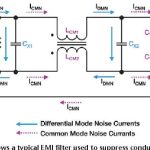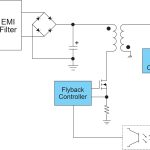1. 📞 Client Requirement Intake
- Gather initial information:
- Functional description of the product
- Technical specifications (voltage, current, communication protocols, dimensions, etc.)
- Block diagram (if available)
- Budget and timeline expectations
- Sign a Non-Disclosure Agreement (NDA) if necessary
2. 📊 Technical Analysis & Consultation
- Engineers assess feasibility and suggest optimal solutions
- Recommend components and technologies
- Define project milestones, deliverables, and estimated schedule
3. 🧩 Schematic Design
- Create the circuit schematic using professional tools ( KiCad is prefered)
4. 🧭 PCB Layout Design
- Place components and route traces
- Optimize for size, thermal performance, and manufacturability
- Submit layout for Client Review – Round 1
- Apply revisions based on feedback
5. 📦 Design Package Delivery
Client receives:
- Schematic files (.SCH or PDF)
- PCB layout files (.PCB or Gerber)
- Gerber + NC Drill files for fabrication
- Bill of Materials (BOM) – component list
- Pick and Place file – for automated assembly
- 2D/3D PCB renderings (if requested)
- STEP file – for mechanical integration
6. 🧪 Prototype Fabrication & Assembly (optional)
- Manufacture sample boards (2–5 units)
- Assemble components
- Perform functional testing ( done by customer if firmware based from customer development)
- Ship prototypes for Client Review – Round 2
7. 🔁 Feedback Loop & Finalization
- Client tests prototypes and provides feedback
- Engineers fix bugs, optimize performance, update design and notice customer about extra cost if any.
- Final design is prepared for mass production
✅ Summary of Deliverables
| Deliverable | Purpose |
|---|---|
| Schematic (.SCH/.PDF) | Circuit understanding |
| PCB Layout (.Gerber) | Manufacturing the board |
| BOM | Component sourcing |
| Pick & Place file | Automated assembly |
| STEP file | Mechanical integration |
| 2D/3D renderings | Visualization and presentation |
| Prototype boards | Real-world testing |





Leave a Reply